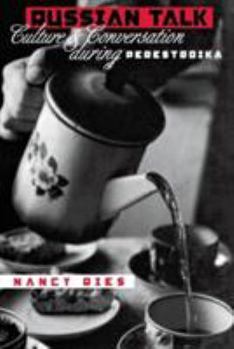Russian Talk: Culture and Conversation During Perestroika
Select Format
Select Condition 
Book Overview
Soulful, theatrical, intense: Russian talk is notably full of existential musing and dark passion. However, despite the widespread appreciation of Russian talk, no one has analyzed it as a form of cultural performance. As one of the first Western ethnographers to undertake fieldwork in Moscow, Nancy Ries did just that. In this pioneering study, she shows how everyday conversation shapes Russian identity and culture.Dire stories about poverty, hardship, and social decay recited constantly during perestroika served to fabricate a common worldview--conveying a sense of shared experience and destiny, and casting Russian society as an inescapable realm of absurdity and suffering. Ries agues that while these narratives aptly depicted the chaotic events of the time, they also comprised a kind of contemporary folklore, generic in their lamenting, portentous tones and their culturally poignant details.The story of a grandmother who stands in line all day in order to bring home a precious kilo of sugar becomes a parable of feminine self-sacrifice and endurance. Sardonic narratives about frustrated communal apartment dwellers pouring hot pepper in their neighbor's soup pot challenge the myth of camaraderie and express the proverbial notion that revenge is sweeter for Russians than reconciliation.This insightful ethnography suggests the enormous power that ordinary talk has, in any society, to shape social and political attitudes, and to produce distinctive cultural patterns.





